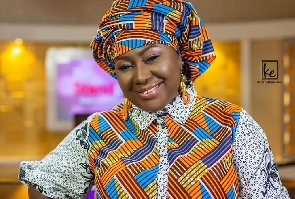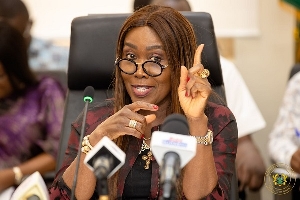Diasporia News of Saturday, 31 October 2009
Source: asiaone
Born in Israel but unwanted by the Jewish state
TEL AVIV, ISRAEL - Eight-year-old Stephanie is not afraid of deportation. Her teacher told her not to be. But like hundreds of Israeli-born children of illegal foreign workers, she faces the prospect of being expelled from the only home she's ever known.
Some 1,200 Asian and African children born in Israel and their parents currently face deportation following a crackdown on foreign workers who have overstayed their visas and continue working in the Jewish state.
The fate of the children has struck a deep chord in Israel, which has absorbed millions of Jewish immigrants since its founding in 1948.
The children are, for all intents and purposes, Israeli - they speak fluent Hebrew, know all the Jewish holidays by heart and celebrate them at school and consider Israel their home.
But while many Israelis support granting the children and their parents residency, others insist that absorbing them would create a dangerous precedent that would undermine the state's Jewish character.
For Stephanie the prospect of being kicked out of the only country she has lived in is unthinkable. But both her parents work illegally in Tel Aviv, 10 years after arriving from the Philippines with work visas.
'I don't want to leave this country, this is my country and I love it,' she said in fluent Hebrew outside the Hayarden elementary school in southern Tel Aviv, where nearly half of the students are children of foreign workers.
Although illegal aliens do not benefit from any social rights, Israel grants their children free schooling and healthcare. Their parents nevertheless do not want to give their full names, fearing the authorities.
According to official figures, some 222,000 foreign workers live in Israel, including 107,000 who have exceeded their work permits.
The arrival of hundreds of thousands of foreign workers over the past two decades has left its mark on the character and demographic landscape of Tel Aviv, transforming the once predominantly Jewish city into a multi-cultural hub.
Entire streets in southern Tel Aviv, home to the majority of Israel's foreign workers, are lined with colourful Asian and African food stores, restaurants, Internet cafes and karaoke bars.
But rough living conditions, poverty and their legal limbo make life arduous for many of the illegal aliens.
Israel started welcoming non-Jewish immigrants mainly from Asia in the mid-1990s to fill a gaping need for cheap labour in construction, agriculture and caregiving.
It issues work visas for nearly 30,000 foreign workers every year and many stay in the country once the visas expire.
Those who remain live in constant fear of arrest and almost automatic deportation.
Several years ago Israel decided to crack down on illegal workers and several months ago, the interior ministry created a new unit to deal with the the issue.
As a result of the enforcement, some 1,200 children and their parents were due to be deported by November 1, but following public pressure the interior ministry agreed to postpone this to the end of the school year.
But while the parents risk going to a place where economic opportunities are few, their children face the prospect of having to leave the place they call home.
The parents of eight-year-old Benita have told her a lot about their native country of Ghana, but she does not want to go there.
'I want to grow up here, and I want to be a soldier,' she said with a broad smile across face. Military service is compulsory in Israel.
School principal Yael Klein says that teaching the children with the risk of deportation hovering over their heads is unique, rife with difficulties but very positive for all school children.
'The children often start school at the age of five with no Hebrew and go into special Ulpan (Hebrew language) classes we set up for immigrants. But they blend in with the rest very quickly.'
'Many children have nowhere to go back to. I think they should not be expelled because they are part of us... their integration is very positive.'
The plight of the 1,200 children has mobilised thousands of Israelis who are pressuring the government to grant them residency.
Rotem Ilan, a 24-year-old student, is among a group of young Israelis who founded in July an association known as Israeli Children to raise awareness to the cause with a series of highly-publicised campaigns.
In one instance, volunteers distributed thousands of pictures of children facing deportation across Tel Aviv.
The original prints were later sold in a glitzy gallery event which was attended by celebrities, wealthy businessmen and a throng of ministers and politicians opposed to the deportations.
Activist Noa Maiman says the children are Israeli in every way.
'One can't say these children are not Israelis. They have Israeli names, they speak Hebrew, they dream in Hebrew. It is the only language they know. They are Israelis,' she said.
Despite the massive public outcry, ultra-Orthodox Interior Minister Eli Yishai remains adamant over his decision that all illegal foreign workers and their families must leave the country.
'Minister Yishai is not ready to give a permanent residency to these children. Their parents, who are staying illegaly, are using their children to whitewash their presence,' Yishai's spokesman Roee Lahmanovitz said.
Allowing this group residency would create a dangerous precedent which could eventually fundamentaly change the Jewish character of Israel, he said. 'We are not a safe haven, period. We should not damage the character of the Jewish state simply out of clemency.'
Entertainment









